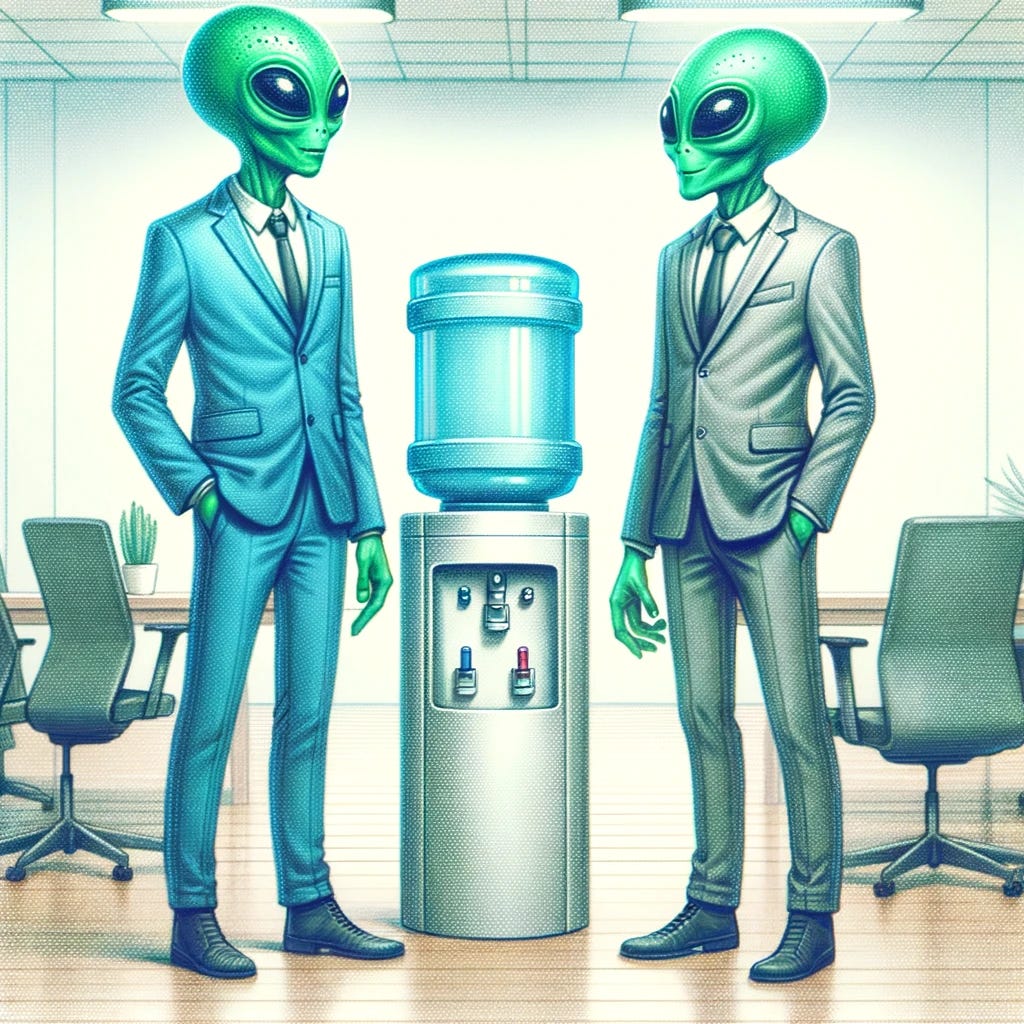“Let’s ideate on this for a bit and see if we can’t generate a unique value add.”
“Sure, but let’s circle back once we can drill down to identify actionable insights."
Are these two humans having a conversation, or do they sound more like some undiscovered alien species conversing?
If you work in an office today, you’ve probably heard all sorts of eye-rolling jargon.
Jargon is a gatekeeper of sorts. If you speak this language, you can be a part of the club. If you don’t, you’re an outsider whose views should not be respected.
This is a double-edged sword! Sometimes it’s really good to keep out people who don’t have any business in your field, and there’s often a world of difference between a casual observer and an expert. Keeping out people who don’t know what they’re doing means you can talk freely about the things you need to.
The other edge of the sword is that jargon can also inhibit real conversations, by way of muddying otherwise clear waters. Let’s use a quick example; tell me wh…
Keep reading with a 7-day free trial
Subscribe to Goatfury Writes to keep reading this post and get 7 days of free access to the full post archives.


